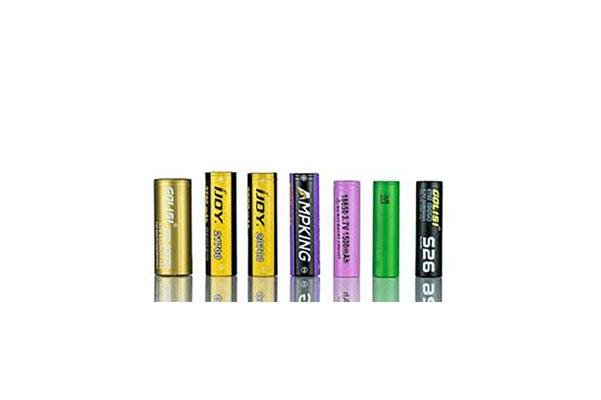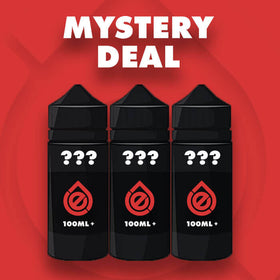
Facts About 18650 Lithium-Ion Batteries Safety Warning
The Consumer Product Safety Commission (CPSC) has issued a warning to customers against buying loose lithium-ion battery cells. These batteries are usually used to power vaping devices, flashlights, and other small appliances. The warning targets the 18650 battery cells, which are a little bigger than AA batteries are commonly used by vaping enthusiasts.
The 18650 lithium-ion batteries are typically produced as part of larger battery packs. However, they are being sold separately with different packages as new individual products on the internet. The CPSC has expressed concerns that repacked 18650 batteries are more likely to result in explosions and fires, resulting in severe injuries and even death.
The CPSC has said it is currently working with several different e-commerce sites like Amazon, eBay, and others to remove “18650 lithium-ion” batteries from their listings. Some stores also offer wholesale offers for these batteries.
“Rechargeable lithium cells without proper protection that are not installed in a device or as part of an integral battery...are potentially hazardous to consumers when handled, transported, stored, charged, or used to power devices,” the CPSC press release read.
According to the CPSC, one of the main dangers of purchasing and using these loose 18650 lithium-ion batteries is transportation. Because they are unprotected, carrying these batteries in the pockets is the option most customers choose. However, this is where the danger lies since these batteries can come into contact with keys, coins, and other objects. The positive and negative terminals of the 18650 battery cells can short-circuit after coming in contact with metal objects or keys.
“These battery cells may have exposed metal positive and negative terminals that can short-circuit when they come into contact with metal objects, such as keys or loose change in the pocket.” “Once shorted, loose cells can overheat and experience thermal runway, igniting the cell’s internal materials and forcibly expelling burning contents, resulting in fires, explosions, serious injuries, and even death,” the CPSC warning read.
The warning about the 18650 lithium-ion come early this year after recent explosions involving these batteries. However, some vapers are pushing back, arguing that these batteries' dangers have long been established. Among vaping communities, it is believed that explosions, fires, and accidents happen among newbie vapers who do not know how to handle properly18650 lithium-ion batteries.
Among vapers, the potential dangers of handling the 18650 lithium-ion batteries are well known and can easily be avoided. Vapers propose that carrying these batteries in plastic or silicone case are the best. These silicone and plastic cases prevent the metal poles in the battery from getting in contact with metal objects.
On the subject of these batteries being repackaged, vapers also have a remedy. According to some vaping experts, you should never buy vaping batteries from unregistered shops. Vapers strongly advise against the re-wrapped battery cells since most could be counterfeits or low-amp batteries that are likely to overheat. The best way around this problem is to buy your batteries from well-known brands and from certified battery retailers.
The CPSC says vaping with 18650 lithium-ion batteries can be dangerous since most vaping devices do not come installed with circuit protections. However, this is not always the case. There are newly regulated vaping wattage mods that are produced with built-in circuit protection. However, most of these modern devices do not require the use of loose 18650 lithium-ion batteries. And like the CPSC warning, the use of loose 18650 lithium-ion battery cells are dangerous. The lack of a protective layer for the loose18650 lithium-ion will be a problem.
It is advisable that vapers do not use 18650 lithium-ion batteries in unregulated mechanical mods. This is especially true for vaping devices with no protective circuitry. There are reports that about two people have died while vaping due to battery accidents. These accidents were reportedly caused using mechanical mods without proper circuitry protection.
The CPSC warning should be welcomed and taken seriously by vapers across the world. It is best for vapers always to follow the battery safety guidelines of every vaping device they use. These guidelines are established to ensure the safety of users. And vapers with concerns about using individual cells can opt for built-batteries that are safer.
Many groups and some individuals have welcomed the CPSC warnings. The Rechargeable Battery Association (PRBA) applauded the safety warnings since it would save lives. And the PRBA also explained that many manufacturers of these 18650 lithium-ion battery cells never intended that these batteries be sold as loose, replaceable power sources. PRBA also urged customers to stick to the CPSC warnings and never handle loose or replaceable power sources with the required safety protection features.
The 18650 lithium-ion batteries are typically produced as part of larger battery packs. However, they are being sold separately with different packages as new individual products on the internet. The CPSC has expressed concerns that repacked 18650 batteries are more likely to result in explosions and fires, resulting in severe injuries and even death.
The CPSC has said it is currently working with several different e-commerce sites like Amazon, eBay, and others to remove “18650 lithium-ion” batteries from their listings. Some stores also offer wholesale offers for these batteries.
“Rechargeable lithium cells without proper protection that are not installed in a device or as part of an integral battery...are potentially hazardous to consumers when handled, transported, stored, charged, or used to power devices,” the CPSC press release read.
According to the CPSC, one of the main dangers of purchasing and using these loose 18650 lithium-ion batteries is transportation. Because they are unprotected, carrying these batteries in the pockets is the option most customers choose. However, this is where the danger lies since these batteries can come into contact with keys, coins, and other objects. The positive and negative terminals of the 18650 battery cells can short-circuit after coming in contact with metal objects or keys.
“These battery cells may have exposed metal positive and negative terminals that can short-circuit when they come into contact with metal objects, such as keys or loose change in the pocket.” “Once shorted, loose cells can overheat and experience thermal runway, igniting the cell’s internal materials and forcibly expelling burning contents, resulting in fires, explosions, serious injuries, and even death,” the CPSC warning read.
The warning about the 18650 lithium-ion come early this year after recent explosions involving these batteries. However, some vapers are pushing back, arguing that these batteries' dangers have long been established. Among vaping communities, it is believed that explosions, fires, and accidents happen among newbie vapers who do not know how to handle properly18650 lithium-ion batteries.
Among vapers, the potential dangers of handling the 18650 lithium-ion batteries are well known and can easily be avoided. Vapers propose that carrying these batteries in plastic or silicone case are the best. These silicone and plastic cases prevent the metal poles in the battery from getting in contact with metal objects.
On the subject of these batteries being repackaged, vapers also have a remedy. According to some vaping experts, you should never buy vaping batteries from unregistered shops. Vapers strongly advise against the re-wrapped battery cells since most could be counterfeits or low-amp batteries that are likely to overheat. The best way around this problem is to buy your batteries from well-known brands and from certified battery retailers.
The CPSC says vaping with 18650 lithium-ion batteries can be dangerous since most vaping devices do not come installed with circuit protections. However, this is not always the case. There are newly regulated vaping wattage mods that are produced with built-in circuit protection. However, most of these modern devices do not require the use of loose 18650 lithium-ion batteries. And like the CPSC warning, the use of loose 18650 lithium-ion battery cells are dangerous. The lack of a protective layer for the loose18650 lithium-ion will be a problem.
It is advisable that vapers do not use 18650 lithium-ion batteries in unregulated mechanical mods. This is especially true for vaping devices with no protective circuitry. There are reports that about two people have died while vaping due to battery accidents. These accidents were reportedly caused using mechanical mods without proper circuitry protection.
The CPSC warning should be welcomed and taken seriously by vapers across the world. It is best for vapers always to follow the battery safety guidelines of every vaping device they use. These guidelines are established to ensure the safety of users. And vapers with concerns about using individual cells can opt for built-batteries that are safer.
Many groups and some individuals have welcomed the CPSC warnings. The Rechargeable Battery Association (PRBA) applauded the safety warnings since it would save lives. And the PRBA also explained that many manufacturers of these 18650 lithium-ion battery cells never intended that these batteries be sold as loose, replaceable power sources. PRBA also urged customers to stick to the CPSC warnings and never handle loose or replaceable power sources with the required safety protection features.

